Creating an institute culture for everyone - what a good IDEA
Workplace culture is central to the success or failure of any organisation, no matter the size or sector.
Research organisations have been self-reflecting over recent years, recognising how the pressures of winning grants, publishing in high impact journals, and staying ahead of the curve can all impact on the workplace dynamics.
As a result, ‘research culture’ has become an increasingly important aspect for funders - receiving the same level of visibility as long-standing efforts to address equality, diversity, and inclusivity.
Given the collaborative, multidisciplinary nature of genomics research, the Earlham Institute recognises the need for a proactive approach to creating a positive working environment. It’s good for our people and good for our science.
This means going beyond compliance, embedding initiatives that contribute to nurturing a workplace we believe is welcoming to everyone. And it’s why ‘Supporting our People’ is one of the five fundamental themes within the Institute’s organisational strategy.
One of the main ways the Institute nurtures its culture is through the work of the Inclusivity, Diversity, Equality, and Accessibility (IDEA) Committee.
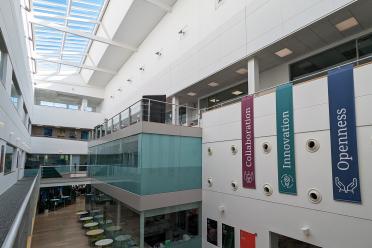
The IDEA Committee brings together people from across the Earlham Institute to reflect the diversity of background, career stage, and lived experience of our people.
Representatives of, and champions for, different communities work together to advise on, and assist with, the development and implementation of an organisational IDEA strategy.
The Committee provides strategic oversight of the Institute’s progress and performance on promoting the four ‘IDEA’ values, proposing new policies, practices, and initiatives, as well as evaluating their impact.
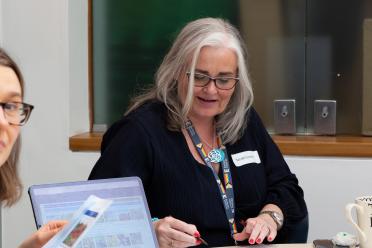

The Committee’s structure should mean everyone is represented in some way, and there is the opportunity for anyone to put forward ideas or raise issues.

Sarah Cossey, Chief Operating Officer and Chair of the IDEA Committee
Sarah Cossey is the Earlham Institute’s Chief Operating Officer and Chair of the IDEA Committee. “We’re a diverse Institute and we can only achieve our mission if all individuals have the right environment, opportunities, and encouragement to grow and develop,” she says.
“That’s one of the reasons why it’s so important for the work of the Committee to apply to everyone - working in both scientific and operational roles.
“The Committee’s structure should mean everyone is represented in some way, and there is the opportunity for anyone to put forward ideas or raise issues. This helps to make sure every member of staff, student, or visitor feels equally welcome, supported, and valued.”
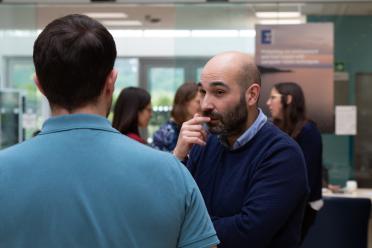
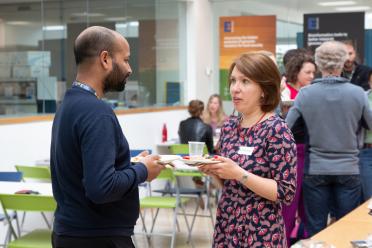
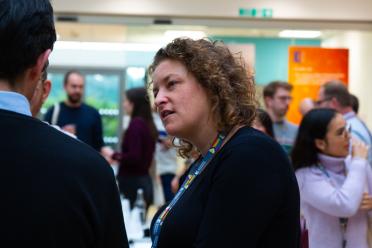
Founded in the summer of 2009, the Earlham Institute is a relatively young organisation. This has its pros and cons when it comes to setting the workplace culture.
Older organisations can find themselves struggling to change structural barriers, such as the physical environment or attitudes that say “it’s always been like this”. The resistance to change can perpetuate inequalities, whereas newer organisations sometimes benefit from greater agility in adapting to best practice.
At the same time, history gives people something to draw upon. They may have lots of data about the diversity of their workforce and the specific issues they encounter, along with well-established groups or initiatives to drive change.
Regardless of age or experience, one of the most important things any employer can do is to look externally for inspiration and support.
The Earlham Institute is a signatory to the Technician Commitment, a member of the Stonewall Diversity Champions programme, and currently holds an Athena Swan Bronze Award for gender equality.
Each initiative is coordinated by the appropriate members of the IDEA Committee and this allows them to explore the right way to implement best practice at the Institute.
The Committee receives reports on progress against our Athena Swan and Technician Commitment initiatives and action plans.
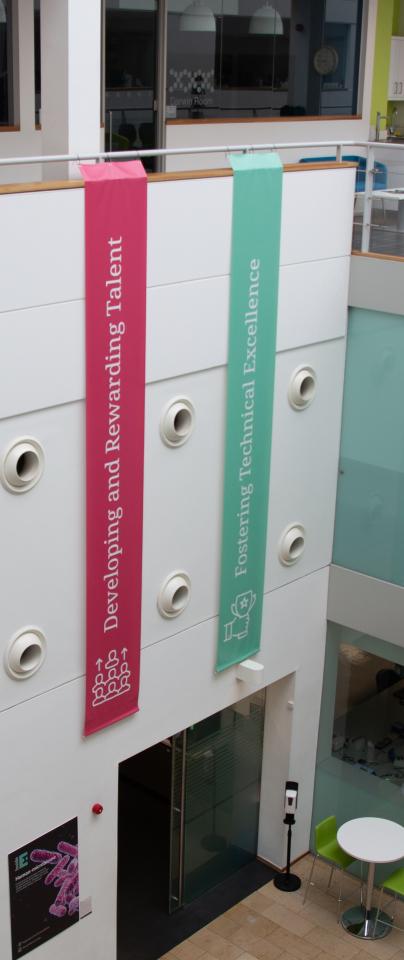

In striving for a culture that embraces inclusivity, diversity, equality, and accessibility, we need to develop robust policies and frameworks but also provide a safe environment for people to make, acknowledge, and then learn from mistakes.

Helen Murdoch, Athena Swan and EDI Coordinator
Awards and signatory status are positive signs of both historic efforts and future intent. But membership is also a broader indicator of the willingness to learn and improve.
“It’s a bit of a cliche but creating a positive culture is a journey, a cycle of continuous improvement,” says Helen Murdoch, the Earlham Institute’s EDI and Athena Swan Coordinator.
“Inequalities persist because of all sorts of human fallibilities - a lack of knowledge or awareness, errors of judgement, and even inherently flawed processes or policies that have become outdated or have simply never been challenged before.
“Some of these may have been right for the time they were written but now need updating to create an environment where everyone can flourish.”
Through the IDEA Committee, the Institute has created a non-judgemental space to explore a range of topics, from supporting mental health and wellbeing and improving building accessibility to giving greater visibility to certain groups.
“In striving for a culture that embraces inclusivity, diversity, equality, and accessibility, we need to develop robust policies and frameworks but also provide a safe environment for people to make, acknowledge, and then learn from mistakes,” she concludes.
In future articles, we’ll explore different strands of the IDEA Committee’s work and how each of these contributes to an environment that seeks to be welcoming and accessible to everyone.